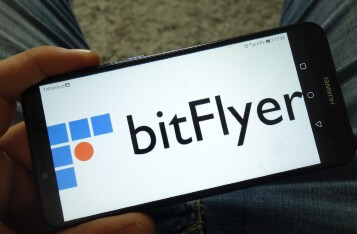
BitFlyer, a leading Japanese crypto asset exchange operator, announced the implementation of new regulations known as the travel rule, aimed at preventing criminal activities and enhancing security in the crypto industry. The company made this announcement on March 23, 2023, in line with updates to the Act on Prevention of Transfer of Criminal Proceeds and other relevant regulations.
Effective from Tuesday, May 30, 2023, around 15:00 JST, bitFlyer will begin implementing the travel rule for all corporate and individual customers who send and receive crypto assets through their services. The company will use the Travel Rule Universal Solution Technology (TRUST) to facilitate compliance with these regulations.
Currently, bitFlyer supports the travel rule solution for several crypto assets, including Bitcoin (BTC), Ethereum (ETH), and ERC-20 tokens such as BAT, LINK, MATIC, MKR, SHIB, and PLT. However, as of May 30, 2023, only the sending and receiving of BTC will be possible between bitFlyer and Coincheck. The availability of sending and receiving ETH and ERC-20 tokens will depend on the completion of Coincheck’s development.
Under the new regulations, customers can send crypto assets to exchange operators that can send and receive the legally required information notifications through TRUST. In Japan, the designated exchange operator is Coincheck, while outside Japan, customers can refer to the list of TRUST-compatible players provided on the Coinbase website. Additionally, customers can also send crypto assets to private wallets like MetaMask, which are not managed by exchange operators.
However, it should be noted that sending crypto assets to exchange operators registered with authorities in Japan or other legally designated countries and regions that cannot send and receive the legally required information notifications through TRUST is not supported.
BitFlyer emphasizes the importance of receiving crypto assets in compliance with the travel rule. Upon receiving crypto assets on their platform, bitFlyer will verify the notification information and may contact customers via email if clarification or additional information is required. Customers are advised to allocate sufficient time for the confirmation process and respond promptly to any communication from bitFlyer.
BitFlyer also mentions its commitment to improving customer convenience and may expand the travel rule solutions based on the practices of other crypto asset exchange operators. This implies that the methods for handling supported crypto asset transfers may be subject to change in the future.
The travel rule, a requirement put forth by the Financial Action Task Force (FATF) to combat money laundering and terrorist financing, mandates that exchange operators providing crypto asset transfers must provide specific information about the sender and recipient to the receiving exchange operator.
BitFlyer, as a crypto asset exchange operator and a type-1 financial instruments business, is dedicated to the development of the crypto asset and web3 industries. The company aims to provide a secure environment for customers to trade crypto assets and contribute to the further advancement of the crypto industry.
Customers are encouraged to refer to the provided references and resources for additional information about the travel rule, including the Japan Virtual and Crypto Assets Exchange Association (JVCEA) and the Financial Services Agency (FSA).


